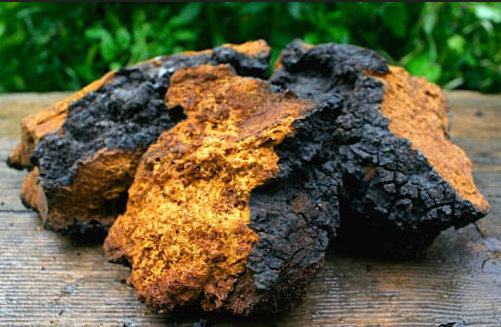Chaga Powerhouse


Chaga mushroom supplements have gained attention for their potential health benefits, including immune support and antioxidant properties. These supplements may help enhance overall wellness and combat oxidative stress in the body. As more individuals seek natural remedies, understanding the role of Chaga mushrooms becomes increasingly relevant.
Many people wonder how to choose effective Chaga mushroom supplements in a crowded market. Factors such as sourcing, extraction methods, and formulation can significantly impact their efficacy. By exploring these aspects, consumers can make informed decisions that align with their health goals.
Chaga mushrooms are not just a trending supplement; they have a long history of use in traditional medicine. Their unique composition and potential health advantages make them a topic worth studying further. Delving into the specifics can reveal valuable insights for anyone interested in integrating Chaga into their wellness routine.
What Is Chaga Mushroom?
Chaga mushroom, scientifically known as Inonotus obliquus, is a fungus that primarily grows on birch trees in cold climates. This unique mushroom has gained popularity due to its potential health benefits and historical significance in various cultures.
Historical Use of Chaga Mushroom
Chaga has been used for centuries in traditional medicine, particularly in Siberia and other parts of Asia. Ancient healers valued it for its purported abilities to enhance overall well-being. Indigenous peoples consumed Chaga as a tea, believing it could help with ailments and promote vitality.
In modern times, interest in Chaga has surged, prompting researchers to explore its health effects. While traditional uses were based on anecdotal evidence, current studies are investigating its potential as a source of antioxidants and other beneficial compounds.
Chaga Mushroom Biology
Chaga is not a typical mushroom; it appears as a dark, irregular mass resembling burnt charcoal. It forms on the bark of birch trees through a parasitic process, thriving in cold environments.
Macroscopically, it consists of a hard, black outer layer and a softer, yellowish interior. Chaga's unique structure allows it to absorb nutrients from the host tree, leading to the accumulation of various bioactive compounds. These include polysaccharides, betulin, and sterols, which contribute to its potential health benefits.
Health Benefits of Chaga Mushroom Supplements
Chaga mushroom supplements offer various health benefits, particularly in supporting the immune system, providing antioxidant properties, and potentially impacting cancer treatment. These benefits stem from the mushroom's rich chemical composition, which includes polysaccharides, beta-glucans, and antioxidants.
Immune System Support
Chaga mushrooms contain beta-glucans, which are known for their immune-boosting properties. These compounds help to enhance the activity of immune cells, including macrophages and natural killer cells.
Regular consumption of Chaga supplements can promote the body's defense mechanisms, making it more resilient to infections. Some studies suggest that the anti-inflammatory properties of Chaga can also play a role in modulating immune responses, leading to improved overall health.
Antioxidant Properties
Chaga mushrooms are rich in antioxidants, which combat oxidative stress in the body. They contain high levels of melanin, which has been shown to exhibit strong antioxidant activity. This can help reduce the damage caused by free radicals.
Antioxidants play a crucial role in maintaining cellular health and preventing chronic diseases. By neutralizing oxidative damage, Chaga supplements may support longevity and overall well-being.
Potential Impact on Cancer
Research indicates that Chaga mushrooms may have potential anti-cancer properties. Studies have shown that extracts from Chaga can inhibit the growth of various cancer cells in vitro. The compounds present in Chaga, such as triterpenoids and beta-glucans, may contribute to this effect.
While more research is necessary to draw definitive conclusions, some evidence suggests that Chaga can enhance the efficacy of conventional cancer treatments. Its immune-modulating and antioxidant effects may help mitigate side effects and improve quality of life for patients undergoing therapy.
How to Choose Quality Chaga Supplements
Selecting high-quality chaga mushroom supplements requires attention to detail. Factors such as the type of extract used and sourcing practices can significantly influence the effectiveness and safety of the product.
Extract Types and Potency
Chaga supplements primarily come in different forms: extract, powder, or capsules. It's crucial to identify whether the product uses a hot water extraction or alcohol extraction method. Hot water extraction typically yields a high concentration of polysaccharides, while alcohol extraction captures a broader range of beneficial compounds.
Look for products that indicate their active ingredients. Potency is important; seek supplements that specify their content in milligrams. A higher concentration often indicates a more effective supplement. When evaluating labels, check for standardized extracts, which ensure consistent levels of active compounds, providing assured benefits with each dose.
Sustainability and Sourcing
Quality chaga is wild-harvested from birch trees, but sustainability matters. Responsible sourcing promotes ecological balance and ensures the long-term availability of chaga. Choose brands that provide information on their harvesting practices.
Certifications like organic or fair-trade can indicate a commitment to sustainable practices. Transparency in sourcing also builds trust. Brands that disclose their supply chain are often more reliable.
Researching the origins of the chaga supplement can help consumers make informed choices. Responsible brands prioritize environmental health while delivering quality products.
Usage and Dosage Guidelines
Chaga mushroom supplements are available in various forms, including capsules, powders, and teas. The recommended dosage can vary based on the form and concentration.
General Dosage Recommendations:
Capsules: 500 mg to 2,000 mg daily
Powder: 1 to 2 teaspoons mixed with food or drinks daily
Tea: 1 to 2 cups brewed from chaga chunks or powder
It is important to follow the manufacturer's instructions on the product label for specific dosage guidelines.
Considerations:
Individuals should consult a healthcare provider before starting any new supplement.
Adjustments may be necessary based on individual health conditions or other medications.
Gradually increasing the dosage can help identify the optimal amount for personal tolerance and effect.
